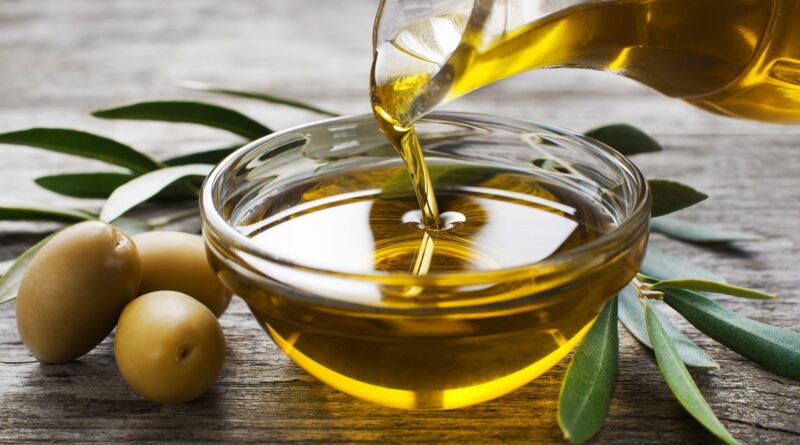Is olive oil good for you? Get these benefits at every location.
Oils often get a bad rap because of their calorie dense value as some contain trans fats, which can increase the risk of heart disease.
However, we need dietary fat to live a healthy life. They help give your body energy, support cell function, protect your organs, keep your body warm, absorb nutrients and produce hormones, the American Heart Association reports.
However, not all oils are created equal- each type has a different nutritional profile with unique benefits.
Olive oil is one of the most popular choices for cooking. But is it healthy? Here’s what the experts are saying.
Is olive oil good for you?
Yes!
“Olive oil is one of the oils that is often recommended for a variety of reasons, and there is little controversy,” says Kat Benson, registered dietitian with Top Nutrition Coaching.
Benefits of olive oil
The benefits of olive oil come from the source itself.
“Oil is extracted from olives, and it contains unsaturated fatty acids, especially an unsaturated fatty acid called oleic acid, which is a fatty acid associated with reducing inflammation when eaten,” Benson says.
It can also help with the absorption of important fat-soluble vitamins such as vitamin D, vitamin A, vitamin E and vitamin K.
“Olive oil is high in antioxidants, which help fight damage in the body in a variety of ways,” says Benson. “Studies have linked olive oil consumption to improved heart health, reduced joint pain, brain health and more.”
Can olive oil be harmful?
It depends on what your goals are.
“Like any fat, olive oil is a high source of calories, which can be very helpful when trying to restore/gain weight depending on the amount used,” says Benson.
But, in fact, it can also lead to too much weight. Portion control is important. It is best used in moderation, for health and taste.
“The truth is, I don’t recommend people who are aiming to get a lot of nutrients from cooking oil, period,” registered dietitian Abbey Sharp told USA TODAY. “I think we can use oil in moderation as a way to improve cooking and improve flavor (and) get heart-healthy fats in there.”
Is it okay to have olive oil every day?
It depends on the person and their health, but in general, it is safe for daily use.
“Olive oil can be a good addition to the daily diet,” says Benson. “The recommended amount of olive oil to be consumed per day may vary based on individual dietary needs, overall diet, activity level and health status. A general guideline is to use 1- 2 of olive oil per day. This amount is associated with health benefits, such as reducing inflammation and reducing the risk of heart disease.”
But it’s in your best interest to change it up: “Variety is the spice of life,” Sharp once told USA TODAY.
He also recommends avocado oil, which contains 50% of your daily intake of vitamin D, which is rich in antioxidants and can reduce bad cholesterol levels while increasing your ” good”. Flaxseed oil is another good choice and is rich in omega-3 fatty acids.
“It’s important to include a variety of fats in your diet because olive oil doesn’t contain all the essential fatty acids we need,” says Benson. “Consider including a variety of healthy fats in your diet other than olive oil, such as fatty fish (eg salmon, mackerel, sardines), avocado, flaxseeds, chia seeds and walnuts, or consider a supplement if your health care provider advises it.”
Get more healthy tips for your daily diet:
Want to know more? We’ve got you covered
USA TODAY reviews the questions you and others ask every day. From “What’s the best drink at Starbucks?” in “What’s a sliced bagel?” to “How much should I feed my dog?” – we’re working hard to find answers to the most common questions you ask every day. Head over to our Just Curious section to see what else we can answer for you.
#olive #oil #good #benefits #location
